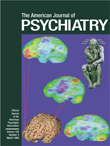ECT Therapy in PTSD
To the Editor: We report a case in which ECT was used in the treatment of a patient with posttraumatic stress disorder (PTSD) and depression.
Ms. A was a 35-year-old married woman with a history of PTSD and depression. She reported feeling “on edge,” with a sense of impending doom, since returning from active duty in the Persian Gulf war in 1991. Since then, she has had suicidal thoughts nearly every day. Although she has a family, she feels unable to achieve emotional closeness with others. During the gulf war, she was raped and witnessed numerous atrocities. She has reexperienced these events in the context of nightmares and daytime flashbacks, which are often triggered by certain odors such as diesel fuel and exhaust fumes.
In the past, several different pharmacotherapy regimens had been instituted without success including amitriptyline, lorazepam, fluoxetine, and trazodone. Approximately 6 months before admission to our Veterans Administration (VA) hospital, she was placed on a regimen of sertraline (100 mg/day). According to Ms. A, this allowed her to “make it through the day,” but it did nothing to alleviate her emotional numbness and hypervigilance. In the past, she had also been treated with psychotherapy at a VA-sponsored PTSD clinic for women, without success.
Recently, Ms. A was admitted to our service because she felt her symptoms had escalated to the point that she was unable to continue living. She agreed to undergo ECT because her previous responses to pharmacotherapy and psychotherapy were inadequate. Ms. A underwent six unilateral ECT treatments, which were administered 3 times per week. All psychotropic medications were discontinued 48 hours before her first treatment. After the third treatment, she reported feeling much better, with significant amelioration of her depression, emotional numbness, and recurrent intrusive thoughts. For the first time in several years, she was able to enjoy life with her family. After the sixth treatment, she was discharged on a regimen of sertraline (100 mg/day).
We are unaware of any existing reports pertaining to the use of ECT in the treatment of PTSD, although it has been suggested that this treatment modality may be effective for depression associated with such disorders (1). Because both pharmacotherapy and psychotherapy often have limited therapeutic outcomes in the treatment of PTSD (2), alternative therapeutic modalities must be pursued. Further studies are needed to explore the usefulness of ECT in the treatment of this disorder.
1. Sutherland SM, Davidson JRT: Pharmacotherapy for posttraumatic stress disorder. Psychiatr Clin North Am 1994; 17:409–423Medline, Google Scholar
2. Solomon SD, Gerrity ET, Muff AM: Efficacy of treatments for posttraumatic stress disorder. JAMA 1992; 268:633–638Crossref, Medline, Google Scholar



